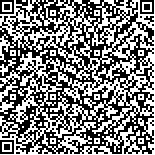| 本文已被:浏览 3094次 下载 2525次 |

码上扫一扫! |
|
|
| Pb2+和Cd2 对刺参幼参的急性毒性及其富集 |
|
邢红艳1, 马元庆1, 李 斌1, 刘爱英1, 靳 洋1, 孙 珊1, 白艳艳1, 赵 强2, 苏 博1, 任利华1
|
|
1.山东省资源与环境研究院 山东省海洋生态修复重点实验室 烟台 264006;2.烟台海益苗业有限公司 蓬莱 265619
|
|
| 摘要: |
| 采用静水试验法,研究了Pb2+(0.1、0.25、0.5、1.0、2.5、5.0 mg/L共6个浓度梯度)与Cd2 (0.2、0.4、0.8、1.0、2.5、5.0 mg/L共6个浓度梯度)对刺参幼参的急性毒性,并分析了其在幼参体内的富集状况。研究表明,幼参死亡率随暴露时间和Pb2 、Cd2 浓度增加总体呈升高趋势,而附壁率则反之。暴露于两组低浓度Pb2 的幼参死亡率差异不显著(P > 0.05),其他组死亡率均随暴露时间和Pb2 浓度增加而显著升高;最高浓度组在72 h时死亡率已达100%,在24 h时其附壁率低至6.7%,与其他浓度组差异均显著(P < 0.01)。暴露于Cd2 的幼参在72 h后的死亡率比48 h内明显升高,96 h时0.8 mg/L浓度组的幼参死亡率即达100%;暴露于Cd2 的幼参附壁率均较低。Pb2 和Cd2 对幼参的安全浓度分别为0.061、0.018 mg/L。随着水体中Pb2 和Cd2 浓度的增加,幼参体内的重金属含量和累积速率均呈升高趋势,但富集系数呈波动性变化,幼参对Cd2 的富集系数和累积速率均高于Pb2 。结果表明,Cd2 对幼参的急性毒性作用强于Pb2 ,且幼参对Cd2 的富集能力明显强于Pb2 。本研究将为阐明刺参在生态环境修复中的作用提供理论依据,并为刺参健康养殖与食用安全提供重要参考。 |
| 关键词: Pb2+ Cd2 刺参 急性毒性 富集 |
| DOI:10.11758/yykxjz.20140414 |
| 分类号: |
| 基金项目:烟台市科技发展计划项目(2011457)、国家自然科学基金项目(41206094)和“水生动物营养与饲料泰山学者岗位”课题共同资助 |
|
| Acute Toxicity and Accumulation of Pb2+ and Cd2 in Juvenile Sea Cucumber Apostichopus japonicus |
|
|
| Abstract: |
| To improve the quality of the aquaculture of sea cucumber Apostichopus japonicus and to enhance the environmental restoration, we studied the acute toxicity of Pb2+ and Cd2 on sea cucumber and the bio-accumulation of these two heavy metals. Using static bio-assay we divided the experimental subjects into groups exposed to each heavy metal at a different concentration —— Pb2 (0.1, 0.25, 0.5, 1.0, 2.5 and 5.0 mg/L), and Cd2 (0.2, 0.4, 0.8, 1.0, 2.5 and 5.0 mg/L), as well as the blank control. We found that mortality rate of A. japonicus increased along with the exposing period or ion concentration, and the adhesion rate showed an opposite pattern. There was no significant difference in the mortality rates between the two groups exposed to low concentrations of Pb2 (P > 0.05), but the mortality rates of other groups rose along with the increase in exposing periods or Pb2 concentration. When exposed to 5.0 mg/L of Pb2 , the mortality rate reached 100% in 72 h and the adhesion rate decreased to 6.7% in 24 h, which were significantly different from other Pb2 groups (P < 0.01). When exposed to Cd2 , the mortality rate of A. japonicus treated for 72 h was apparently higher than that after the 48 h treatment; in 96 h the mortality rate reached 100% in the group treated with 0.8 mg/L Cd2 . Generally the adhesion rate of A. japonicus was lower after the Cd2 treatment. The safe concentrations of Pb2 and Cd2 were 0.061 mg/L and 0.018 mg/L respectively. The concentrations of the heavy metals and their accumulation rates in A. japonicus were elevated along with the increase in concentrations of Pb2 and Cd2 in the water, with a remarkable fluctuation in the concentration factor. Both the concentration factor and the accumulation rate of Cd2 in juvenile sea cucumber were much higher than those of Pb2 . Therefore, the acute toxicity and the accumulation of Cd2 may be higher than those of Pb2 . This study should provide insights into the ecological restoration of A. japonicus, and scientific references for the aquaculture quality and seafood safety. |
| Key words: Pb2+ Cd2 Apostichopus japonicus Acute toxicity Accumulation |